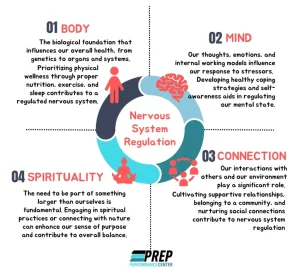
Sauerkraut, kimchi and yogurt aren’t just delicious foods: they could help prevent disease and reduce inflammation as well.
Fermentation is the process by which microorganisms convert starches and sugars to alcohol, lactic acid or other compounds which produce vitamins or other healthful components that have numerous health benefits.
These bacteria produce bioactive peptides with antioxidant, anti-inflammatory, blood pressure lowering and other properties.
Fermented Vegetables
Fermentation combines one of the oldest and time-honored ways of food preservation with probiotic benefits. Fermented products contain bacteria that help the body digest difficult-to-digest compounds such as lactose in dairy products or FODMAPs in vegetables, grains, or legumes.
Fermented foods contain bacteria that produce lactic acid, which has been shown to modulate immune function and decrease inflammation while altering the proportion of microorganisms in your gut. Furthermore, breaking down plant compounds by bacteria reduces antinutrients (compounds which inhibit or block absorption of beneficial nutrients in food) while simultaneously increasing bioavailability of certain vitamins and minerals such as Vitamin C, calcium and potassium.
Sauerkraut is one of the most beloved fermented vegetables, pairing tasty cabbage with time-honored fermentation technology to produce one of the world’s oldest and healthiest food sources: sauerkraut! Most grocery stores carry it in the refrigerated section where its “live and active cultures” are kept to ensure maximum nutrition: it provides essential vitamin K, C and fiber benefits!
Fermented Fruits
Fermented foods have grown increasingly popular because they offer a natural source of probiotics – essential beneficial bacteria that contribute to maintaining an ideal gut environment.
Fermentation is a natural anaerobic process that converts sugars to acids, gases and alcohols for preservation purposes, flavor enhancement and food preservation. Fermented fruits can be produced by mixing raw fruit with microbes that cause fermentation of their food products.
Fermented foods also have the power to support digestive health by providing essential probiotics and prebiotics in an ideal combination. Bacteria present in fermented food products may help break down indigestible fibers and proteins to make them easier for our bodies to process.
These bacteria can help break down antinutrients such as phytates and lectins that prevent absorption of essential minerals like calcium, iron and zinc. Furthermore, these organisms convert phenolic compounds in foods into immune-regulatory and neurogenic metabolites that benefit the intestinal tract.
Fermented Milk
Fermented dairy foods may be associated with probiotics, but their health-promoting properties extend far beyond that. Fermentation improves digestibility by breaking down compounds difficult for our stomachs to break down (such as lactose) and increasing absorption of minerals (via binding to them with phytic acid) and vitamins.
Fermentation also enhances bioavailability of phenolic plant compounds that modulate neurotransmission, improving gut-brain axis. (27) Furthermore, Lactobacillus pentosus from kimchi can protect against drug-induced memory impairment as well as increase release of brain-derived neurotrophic factor or BDNF. (28)
Modern food production and processing techniques have long dominated in developed nations, but ancient preservation techniques are making a comeback due to an increase in interest for more ancestral eating patterns. Young people today are eagerly devouring these time-honored staples such as kefir, yoghurt and sauerkraut as time-honored staples of society.
Fermented Soups
Fermentation is one of the oldest forms of food preservation. While cabbage tends to go bad quickly, when fermented into sauerkraut it can last for months. Yogurt and kefir contain living microbes which provide beneficial microbiota that boost intestinal biodiversity.
Fermented foods may help restore and balance gut microbiota, which may have become imbalanced through factors like poor eating habits, antibiotic use, stress or environmental toxins. [1]
Fermented soups like miso, kimchi and natto contain probiotic bacteria found in probiotic-rich fermented foods like miso. Miso is particularly abundant with probiotic bacteria; in one study consuming miso soup increased stool bacterial count (particularly Bacilli and Bifidobacteria) while also decreasing short-chain fatty acids and ammonia levels and increasing stool bile acid content. [2]







